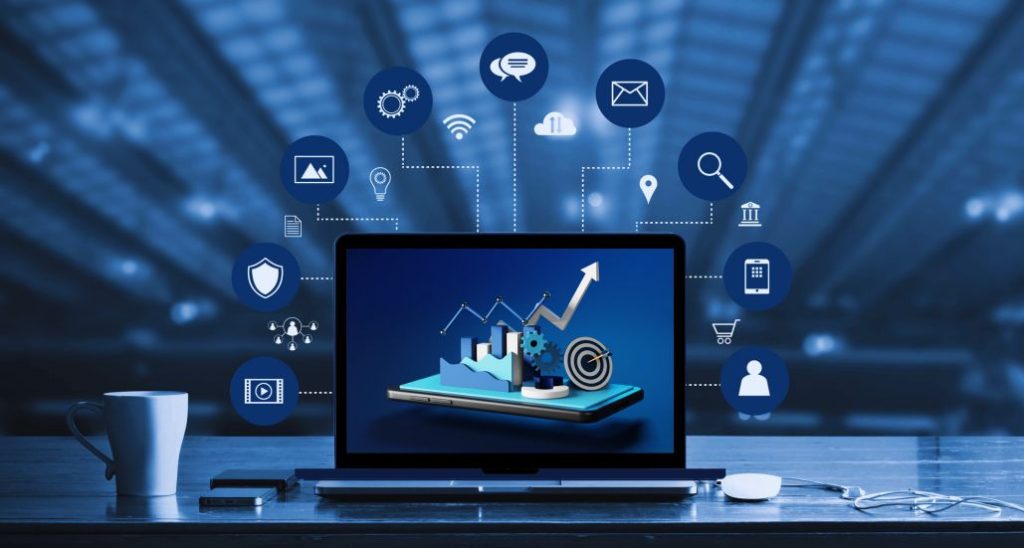New Performance Marketing Trends Every Business
Introduction
Digital marketing in 2025 has become more advanced, data-driven, and interconnected than ever before. Strategies that once relied on manual optimization or generic messaging have transformed into intelligent systems powered by automation, artificial intelligence, and predictive analytics. Today’s businesses need more than visibility — they need digital ecosystems that adapt, learn, and deliver personalized experiences in real time. At Zee IT Services, we work with companies to modernize their digital marketing framework so they can compete confidently in today’s fast-paced digital environment.
AI as the Core of Modern Digital Marketing
Artificial intelligence now sits at the heart of all high-performing marketing strategies. Instead of guessing what audiences want or manually adjusting targeting, AI analyzes user behavior, predicts intent, and automates optimizations across campaigns. It continuously updates bids, budgets, and audiences, reacting to performance signals faster than human teams ever could. This results in smarter spending, higher accuracy, and significantly improved ROI. AI-powered insights also allow businesses to make better decisions by forecasting trends and understanding user behavior with greater clarity.
The Shift Toward Hyper-Personalized Experiences
The modern consumer expects brands to understand their needs instantly, and personalization has become a critical differentiator. In 2025, personalization extends far beyond using a customer’s name or retargeting them with previous products. Websites dynamically adapt based on user history, location, or buying stage. Ads automatically adjust visuals and messaging depending on audience interest. Email nurturing journeys shift dynamically based on how users engage. Brands that deliver these relevant and tailored experiences see higher engagement, longer retention, and stronger customer loyalty.
Omnichannel Marketing and Unified Brand Experiences
Consumers no longer follow linear paths. They jump from Google to Instagram, from a YouTube video to a website, and from an email to a mobile search within minutes. Successful brands in 2025 create unified experiences across all these touchpoints. Omnichannel marketing ensures that messaging, tone, and branding stay consistent, no matter where the customer interacts with the brand. This seamless flow builds trust, increases brand recall, and makes the decision-making process easier for the consumer. Multi-touch attribution now reveals exactly how each channel contributes to a conversion, allowing businesses to optimize holistically rather than focusing on single-source data.
Creativity as a Performance Driver
Creative quality has become as important as targeting. In a crowded digital landscape, the brands that capture attention are those that tell compelling stories, evoke emotions, and use visuals that resonate with modern audiences. Short-form video content has taken center stage, forcing brands to communicate value quickly and memorably. At the same time, AI tools now evaluate creative performance, test new variations, and predict which formats will perform best. This has made creativity a measurable, data-informed component of digital marketing rather than a subjective exercise.
Trust and Authenticity as Essential Brand Pillars
While technology has improved marketing efficiency, trust has become the most important factor influencing purchase decisions. Modern consumers are more aware of manipulative tactics and more cautious about where they invest their attention. They look for genuine interactions, transparent communication, and reliable customer experiences. Brands that share real testimonials, offer valuable insights, display consistent messaging, and demonstrate expertise build stronger, longer-lasting relationships with their audiences. Trust is not built in a single interaction — it is earned through consistent and authentic digital behavior.
First-Party Data as a Strategic Advantage
The decline of third-party cookies has reshaped how businesses collect and use data. First-party data — gathered from websites, CRMs, and customer interactions — has become the foundation of personalization and performance. It allows companies to build accurate profiles, nurture customers more effectively, and create communication strategies based on real behavior. First-party data also reduces dependency on external platforms, giving brands more control, stronger insights, and more cost-efficient marketing opportunities.
How Zee IT Services Builds High-Performance Digital Marketing Ecosystems
At Zee IT Services, we help brands evolve beyond outdated marketing practices by implementing AI-backed strategies, building connected funnels, creating high-conversion creatives, and using intelligent analytics to drive growth. Our approach integrates technology, creativity, and strategy to ensure brands achieve predictable results and long-term scalability. We design digital ecosystems that automate work, reduce acquisition costs, and generate consistent performance across platforms. With an emphasis on personalization, trust-building, and performance insights, we help businesses thrive in today’s complex digital landscape.
Conclusion
Digital marketing in 2025 demands a smarter, faster, and more adaptive approach. Businesses that embrace AI, personalization, creativity, and omnichannel strategy will thrive, while those that rely on outdated methods will struggle to keep up. By building intelligent marketing systems and delivering cohesive customer experiences, brands can secure a stronger position in a highly competitive environment. Zee IT Services empowers businesses to adopt these modern strategies, helping them grow sustainably and outperform competitors in the digital-first world.

